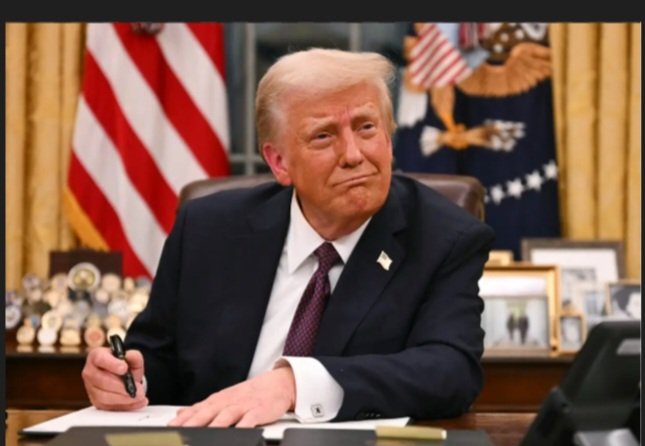After agreeing to postpone a 50% tariff on EU goods until July 9, U.S. President Donald Trump noted Tuesday that he was keeping an eye on “positive” developments in trade negotiations with the EU.
In a post on the Truth Social site, Trump stated, “I recently learned that the European Union has called to promptly set up meeting dates.”
This is a good thing, and I hope that they will finally open up the European nations to trade with the United States of America, as I have demanded to China.
Additionally, Trump said on Tuesday that the EU has been “slow walking” in talks with the White House regarding a trade agreement.
Trump’s threat last Friday of even higher tariffs on one of the United States’ largest trading partners shook markets. Trump said in a post last week that talks with the EU were “going nowhere.”
Nonetheless, optimism over a breakthrough shifted on Tuesday. While European Trade Commissioner Maros Sefcovic stated Monday that he had “good calls” with U.S. Commerce Secretary Howard Lutnick, European Commission President Ursula von der Leyen stated in a post on X over the weekend that the EU was “ready to advance talks swiftly and decisively.”
While U.S. markets opened generally higher, Europe’s regional Stoxx 600 index marginally extended gains following Trump’s remarks on Tuesday, closing up 0.55% from the previous day.
As part of Trump’s “reciprocal” tariff plan, the 27-member alliance was struck with a 20% duty on April 2. The levy was subsequently reduced to 10% for 90 days for nearly all trading partners. The bloc’s exporters are also being impacted by concurrent U.S. taxes on steel, aluminum, and automobiles.
EU leaders have made it clear time and time again that they want to work out a deal with the White House, but they will not compromise on this. In the event that an agreement cannot be reached, the European Commission, the executive branch of the EU, earlier this month began a consultation on tariff countermeasures aimed at 95 billion euros ($107.4 billion) in U.S. imports.
Businesses say they are waiting for further information, although the U.S. announced the framework of a trade agreement with the U.K. on May 8, the first of its kind under the current Trump administration. The agreement keeps the baseline tax on British imports to the United States at 10%, implying that other nations will at least have to pay that amount.
Trump has generally been positive about the United Kingdom because of its more equitable trading ties with the United States. However, he has charged that the EU, with which it has a goods deficit, is unfairly punishing the United States. According to EU statistics, trade between the EU and the US is about balanced when both commodities and services are taken into consideration.





